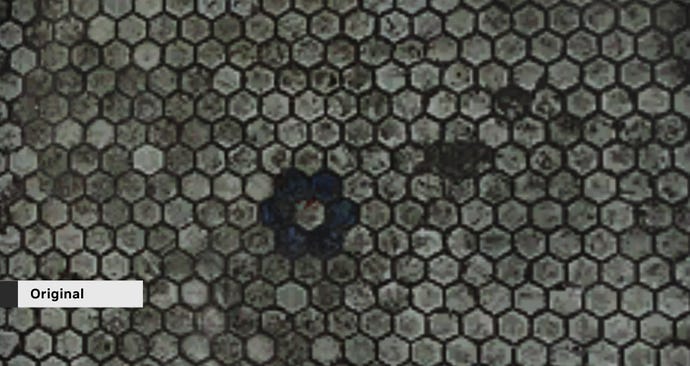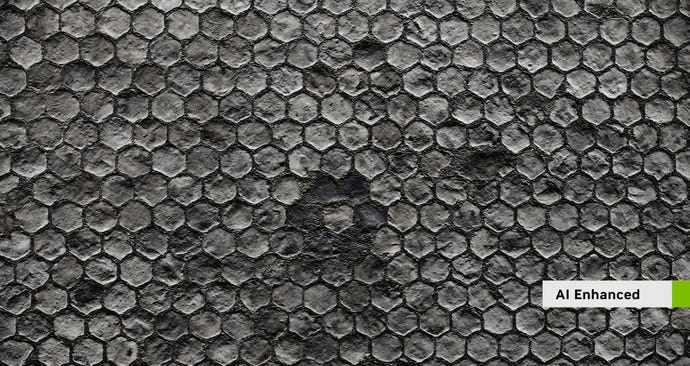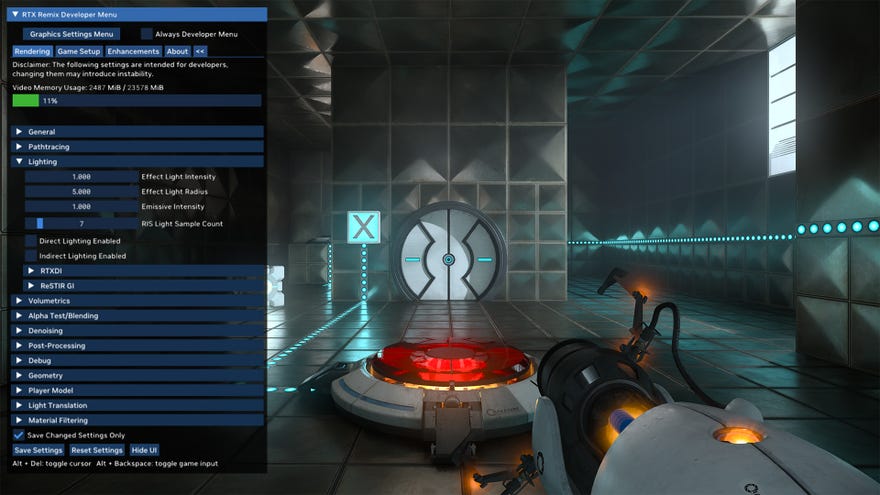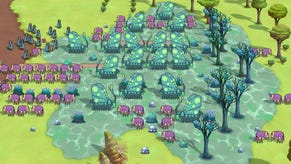Nvidia's cross-game modding tools RTX Remix now in open beta
Inject new lighting and AI-'enhanced' textures into everything from Deus Ex to Garry's Mod
The Nvidia tools used to create that raytraced Portal mod and other fanciness are now in open beta, inviting all and sundry to jazz up everything from Deus Ex to Garry's Mod. Nvidia's RTX Remix tech lets people fancify old games by injecting fancy modern lighting, new models, textures 'remastered' by AI, new environmental decoration, and other such fanciness, even if the game doesn't have mod support. I'll be curious to see what people make with this, though I am wary of artlessly pumping new tech into old games.
To greatly simplify: rather than changing a game files, RTX Remix mods the game while it's running by jacking into the renderer. It can swap in new effects and assets on the fly, adding raytracing, DLSS support, replacement 3D models, and textures supporting physically-based rendering, and even use generative AI to automatically create high-resolution textures. If'd you'd rather a more technical description, here's Nvidia's own explanation.
RTX Remix mods can't actually change how a game works, only its looks, though you can of course combine it with classic manual modding in games which support that. The upcoming Half-Life 2 RTX project that Nvidia keep highlighting combines RTX fanciness with new models, textures, and good old-fashioned level editing in Hammer.
Nvidia note that RTX Remix "works best with DirectX 8 and 9 games with fixed function pipelines", and you can see a full list of currently supported games on Mod DB.
I'll be curious to see the impact of RTX Remix on smaller mods made by smaller teams without Nvidia's support. By and large, I don't like 'HD remaster' mods, especially ones which spaff tech everywhere. The look of a game is designed in combination with its technology, so juicing one can wildly imbalance it (though as RPS reader Freedom's Flame noted, this tech could also counterbalance mods which put high-tech assets in a low-tech game). It's easy for games to come out looking a weird mish-mash. An undeniably high-tech mish-mash, sure, but an artless one. Unfortunately, video games too often mistake technology for artistry—and graphics card manufacturers like Nvidia are strongly incentivised to encourage that mindset.


While I must caveat that I am the sort of hoary purist who plays Quake without texture filtering and thinks most 'HD texture pack' mods are downgrades (aside from a few standouts, such as the RE4 HD Project), I do not like the look of RTX Remix's auto-upscaling textures. Most of Nvidia's examples look distinctly worse and outright change what some surfaces are. They no longer look like the object or material they're intended to suggest, and instead look very precisely like something else. My desk might look blurry if I take off my glasses, but the woodgrain doesn't deepen into gouges and grit when I put them on.
You can download RTX Remix over here. See Nvidia's open beta blog post for more info.










